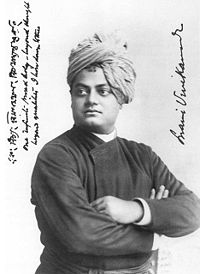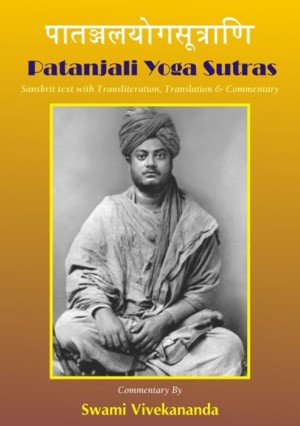35. हृदम ेणचत्तसंणवत ॥३५॥्
hrḍaye citta-saṁvit ||35||
In the heart, knowledge of minds.
36. सत्त्वऩुषमोयत्यन्तासंकीिमो्य प्रत्यमाणवशषोे बोग् ऩयाथत्वातय स्वाथसंमभातय ् ऩुष ानभ ॥३६॥्
sattva-puruṣāyoḥ atyantā-saṁkīrṇayoḥ pratyayāviśeṣo-bhogaḥ para-arthat-vāt-sva-arthasaṁyamāt puruṣa-jñānam ||36||
Enjoyment comes by the non-discrimination of the very distant soul and Sattva. Its actions are for another; Samyama on this gives knowledge of the
Purusa.
This power of non-attachment acquired through purity gives the Yogi the enlightenment called Pratibha.
37. तत् प्राणतबश्राविवदनादशाेस्वादवाताय यजामन्त े॥३७॥
tataḥ prātibha-srāvāṇa-vedana-ādarśa-āsvāda-vārtā jāyante ||37||
From that arises the knowledge of hearing, touching, seeing, tasting, and smelling, belonging to Pratibha.
38. त ेसभाधावऩसगाुयव्यत्थानु ेणसद्धम् ॥३८॥
te samadhavupasargaa vyutthane siddhayah
te samādhav-upasargā-vyutthāne siddhayaḥ ||38||
If the Yogi knows all these enjoyments of the world it comes by the junction of the Purusa and the mind. If he wants to make Samyama on this, that they are two different things, nature and soul, he gets knowledge of the Purusa. From that arises discrimination. When he has got that discrimination he gets the Pratibha, the light of supreme genius. These powers, however, are obstructions to the attainment of the highest goal, the knowledge of the pure Self, and freedom; these are, as it were, to be met in the way, and if the Yogi rejects them, he attains the highest. If he is tempted to acquire these, his farther progress is barred.
39. फिकायिशैणथल्यात प्रचायसवंदनाच्चे णचत्तस्य ऩयशयीयावश्े ॥३९॥
badnha-kāraṇa-śaithilyāt pracāra-saṁvedanācca cittasya paraśarīrāveśaḥ ||39||
When the cause of bondage has become loosened, the Yogi, by his knowledge of manifestation through the organs, enters another’s body.
The Yogi can enter a dead body, and make it get up and move, even while he himself is working in another body. Or he can enter a living body, and hold that man’s mind and organs in check, and for the time being act through the body of that man. That is done by the Yogi coming to this discrimination of
Purusa and nature. If he wants to enter another’s body he makes a Samyama on that body and enters it, because, not only is his Soul omnipresent, but his mind also, according to the Yogi. It is one bit of the universal mind. Now, however, it can only work through the nerve currents in this body, but when the Yogi has loosened himself from these nerve currents, he will be able to work through other things.
 Swami Vivekananda
Swami Vivekananda
